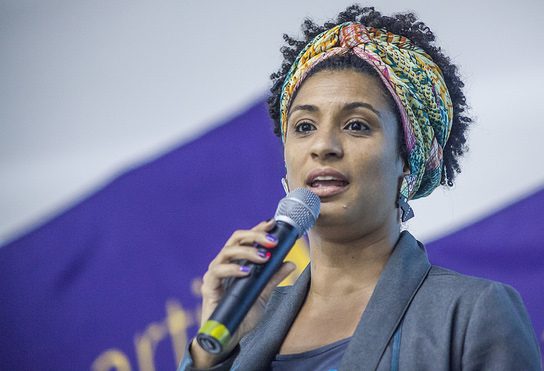Organisations denounce violations committed during federal intervention in Rio at the UN
Amnesty International. Conectas, Justiça Global, Redes da Maré and Observatório da Intervenção hold an event parallel to the UN Human Rights Council Session on 20 September, in Geneva.

Approximately seven months after the decree for federal intervention in public security in Rio de Janeiro, civil society organisations are calling attention to human rights violations and increased levels of violence, evidence of the inefficiency of this model. Confrontations between factions, militias and security forces have been exacerbated, reaching a record 6 thousand gun battles registered during the months of intervention. There has been a 38% increase in deaths resulting from police action, in comparison to the same period last year.
The panorama of systemic violations will be debated in an event parallel to the 39th session of the UN Human Rights Council, on 20/089, in Geneva. The debate ‘Militarisation of public security: federal intervention in Rio de Janeiro, extrajudicial executions and risks for human rights defenders’ will bring together representatives from Amnesty International, Conectas, Justiça Global, Redes da Maré, Observatório da Intervenção as well as Monica Benício, Marielle Franco’s partner. Marielle, a defender of human rights and a councilwoman, was murdered in Rio de Janeiro in March this year, already during federal intervention. There will be live online transmission on the Red Internacional de Derechos Humanos Facebook page.
“Of the 44 decrees for the Guarantee of Law and Order, in the last 10 years in Brazil, 17 were in the city of Rio de Janeiro which shows the worsening militarisation of public security in Brazil, particularly in the favelas of Rio.” Explained Eliana Silva, Director at Redes da Maré. This has a direct impact on the escalation of the violence and the occurrence of violations, according to Guilherme Pontes, a Researcher on the Institutional Violence and Public Security Programme at Justiça Global. “A security policy based on armed confrontations with high levels of fatalities and the growing use of the armed forces in homeland security are not acceptable in a state based on justice and integrity, committed, at an international level, to human rights.”
Read more
The organisations are unanimous when they say that federal intervention in public security is a drastic measure, that should be actioned under exceptional circumstances, which is not the case in Rio de Janeiro. Critics of the decree stress a lack of transparency and doubts about the competence of public bodies. Evidence of this being that seven months after it was introduced, there has still been no detailed budget or planning about specific actions. Another point raised by the organisations is impunity in the case of crimes committed by military staff.
“Militarisation and the frequent use of the armed forces does not reduce criminality, moreover they lead to human rights violations. Impunity in the case of violations committed by military staff only aggravates the scenario of violence by police officers who feel they have the authority to kill.” Says Renata Neder, Research Coordinator at Amnesty International Brazil. Camila Asano, Programme Coordinator at Conectas, emphasises that intervention is unconstitutional and “employs the logic of war in handling the issue of public security, which is structurally flawed in Brazil and the solution to which depends on investment in basic public policies, such as education and health, as well as in initiatives that promote the decriminalisation of drugs, arms control and reforms in the police forces”.
Since February 2018, Observatório da Intervenção monitoring has recorded over 450 military police operations that mobilised a total of 180 thousand officers. While at the same time noting a scarcity in intelligence work which could break up criminal groups without violence and of initiatives dedicated to facing the historic problem of police corruption. “We need security policies that preserve lives not those based on operations that provide few results and cause gun battles and deaths, often caused by the police forces themselves, as has happened in Rio de Janeiro under intervention.” Said the Coordinator of the Observatório da Intervenção, Silvia Ramos.
The murder of Marielle Franco
Marielle Franco was a human rights defender in Rio de Janeiro, known for her defence of the rights of young black people in the favelas and poor communities as well as those of women and LGBTI people. She worked at the Human Rights Commission of the Legislative Assembly in Rio de Janeiro, for a decade and in 2016 was elected councilwoman in the municipality of Rio de Janeiro.
On 14 March 2018, around one month after the decree for federal intervention in Rio de Janeiro, Marielle Franco was shot dead on her way home from a debate. Anderson Gomes, the driver of the car she was in, was also killed. Marielle had been nominated rapporteur of the commission created in the Municipal Chambers to monitor federal intervention in public security in Rio de Janeiro. She was opposed to the intervention and to the policy of militarisation of public security.
Almost six months after her murder, there has been no answer as to who committed the crime, who ordered it and what the motivation was. Information provided by the press suggests that Marielle Franco’s murder was a sophisticated, carefully planned crime and may have had the participation of police officers and security forces.






